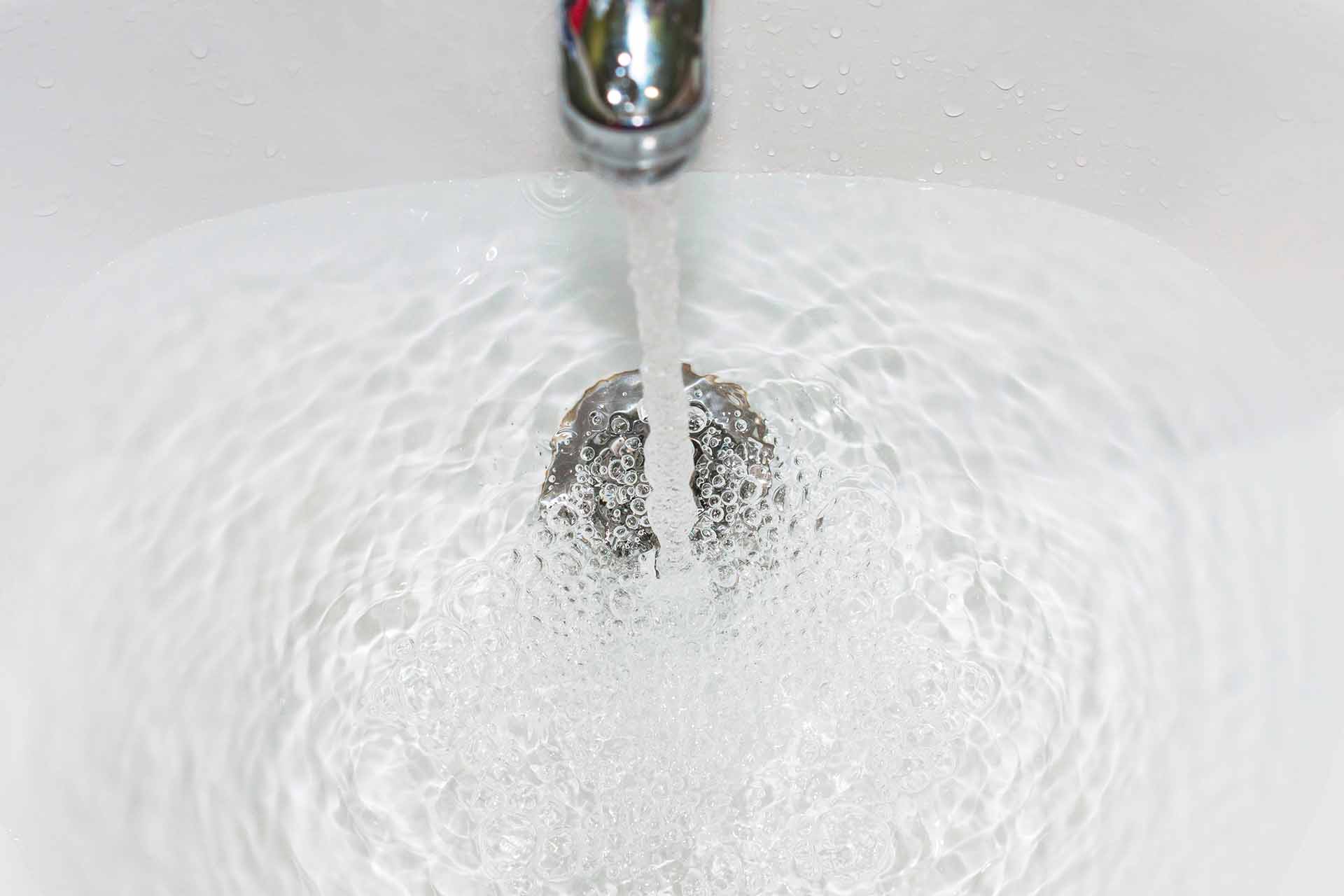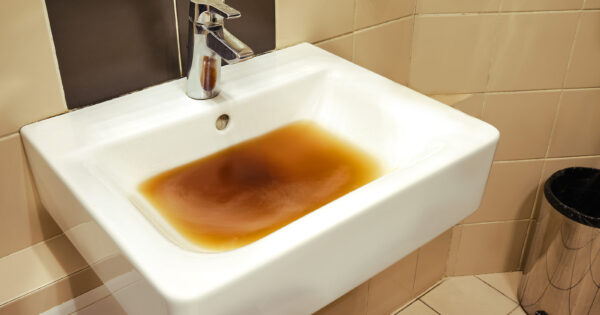Every person maintains their unique theory when it comes to How to Fix a Slow Draining Sink.

Introduction
We have actually all existed: You're cleaning your teeth or cleaning your hands, and you see the water merging in the sink. As opposed to quickly swirling down the tubes, it sticks around, turning your once-refreshing morning routine right into a mini swamp scene. A slow-draining sink isn't simply irritating; it's usually an indication of bigger plumbing concerns prowling underneath the surface. Fortunately is that most slow-draining sinks can be taken care of with a little knowledge, a few standard tools, and some persistence. All set to tackle this task head-on? Allow's roll up our sleeves and dive right in.
Comprehending the Reasons For a Slow-Draining Sink
Before you begin poking around in your pipes, it aids to recognize what could be triggering the slowdown. Understanding the root cause makes it easier to pick the ideal fix.
Common Perpetrators Behind Slow Drain
So, what's clogging things up? Normally, it's a combination of daily debris-- believe hair, soap residue, toothpaste residue, and remaining food bits. With time, these little bits build up and hold on to the pipe wall surfaces, progressively tightening the flow and making it harder for water to travel through. In some cases, mineral deposits from hard water can likewise include in the substance, producing the ideal storm for stubborn clogs.
When is it Time to Take Action?
If you observe the water draining pipes slower than normal, it's a good idea to interfere faster rather than later on. Waiting too long can bring about complete blockages, undesirable odors, or even pipeline damage. If the water takes more than a couple of seconds to clear out after turning off the faucet, consider it a red flag and prepare to put on your DIY hat.
Tools and Materials You'll Require
The right devices make all the distinction. Fortunately, you won't require a totally stocked plumber's van to get the job done.
Necessary Tools for Do It Yourself Repair Works
A plunger is your best beginning point. A small, sink-sized bettor produces suction that can remove small blockages. For even more persistent obstructions, a drainpipe snake (in some cases called a plumbing professional's auger) works marvels. A pair of gloves, a flashlight, and perhaps a pair of safety goggles are also helpful.
Recommended Cleansing Solutions
Moderate recipe soap and warm water can assist break down oily build-up. A combination of baking soft drink and vinegar is a tried and true natural home remedy, and enzymatic cleansers supply an even more green method. Keep chemical drain cleaners as a last resource, as they can be rough on your pipelines.
Security First: Safety Measures and Preparations
Prior to you launch into unclogging setting, consider safety. You're dealing with potentially unclean water and debris, so slip on a pair of gloves. If you're making use of chemical cleaners, make certain the room is well-ventilated and comply with the guidelines on the label.
Protective Equipment and Work Area Configuration
Lay down some old towels or dustcloths around the sink location to capture dashes. Eliminate any kind of products that could enter your means, like soap dispensers or toothbrush holders. See to it you have excellent lights-- grab a flashlight if required.
Step-by-Step Guide to Dealing With a Slow-Draining Sink
Currently, allow's get into the nitty-gritty. This detailed process will direct you via straightforward strategies to restore your sink's water drainage.
Action 1: Get Rid Of and Clean the Stopper
Commonly, the stopper (that small plug you push down to block water) is the first offender. Remove it carefully and clean off any hair or gunk entraped around its base. Rinse it extensively prior to putting it back in place.
Action 2: Make Use Of a Bettor to Displace Debris
Got that bettor ready? Placement it over the drain and offer it a few company pumps. The idea is to create suction that can loosen up any obstruction. If you see littles debris floating up, you're on the best track.
Step 3: Try a Drain Serpent or Cord Hanger
If the plunger does not suffice, it's time to draw out the drainpipe snake. Carefully feed it right into the drainpipe and twist as you go. You might really feel some resistance-- that's likely the obstruction. Maintain twisting and pulling up until you get rid of the obstruction. If you don't have a drain serpent, a corrected the alignment of wire wall mount can work in a pinch.
Step 4: Apply a DIY Drain Cleanser
An all-natural cleaner made from baking soft drink and vinegar can break down residual crud. Pour half a cup of baking soft drink right into the drainpipe, complied with by half a mug of vinegar. Let it fizz for about 15 minutes, then flush with hot water. This chain reaction usually does marvels for minor clogs.
Tip 5: Rebuild and Check the Sink
Put whatever back together and run the tap. Does the water currently swirl down the tubes at a commendable speed? If yes, give yourself a pat on the back. Otherwise, do not anguish-- there are still a few more dress up your sleeve.
Alternate Techniques for Stubborn Clogs
Not all blockages are developed equivalent. If your sink still refuses to coordinate, consider these alternative solutions.
Sodium Bicarbonate and Vinegar Approach
We already touched on this, but it deserves keeping in mind again. This mild, eco-friendly approach is much safer than chemical cleaners and frequently quite reliable.
Chemical Drainpipe Cleansers
Enzyme-based cleaners use all-natural microorganisms to absorb raw material. They're an outstanding choice if you're aiming to prevent rough chemicals. Simply remember, they may take a bit longer to function their magic.
Chemical Drain Cleaning Company: Advantages And Disadvantages
Chemical cleansers can blast with difficult blockages fast, however they're not without disadvantages. They can create warm and fumes, damages pipes if utilized exceedingly, and pose environmental dangers. Utilize them moderately, and always comply with the instructions very carefully.
Preventive Measures to Maintain Your Sink Flowing
Avoidance is the best treatment. By embracing a few straightforward routines, you can maintain your sink from reducing to begin with.
Routine Cleaning Up Routines
Wipe down the sink basin and component location consistently. Get rid of hair or food bits prior to they have a possibility to wash down the drain.
Preventing Damaging Substances Down the Drain
Hesitate before unloading coffee grounds, grease, or coarse veggie scraps down the sink. These culprits cling to pipe wall surfaces, producing blockages in time.
Routine Upkeep Checks
Set up a fast regular monthly evaluation. Run hot water with the sink for a couple of minutes, focusing on the circulation. If it appears slow, act fast before it becomes a full-blown clog.
When to Call a Professional Plumbing Technician
Occasionally, regardless of exactly how hard you try, that clog just will not move. That's when it's time to generate the pros.
Indications That Indicate a More Serious Concern
If your sink drains pipes slowly despite numerous attempts, or if you notice water backing up in other components (like your shower or toilet), you might have a much more serious plumbing issue hiding deeper in the system.
Stabilizing Do It Yourself Efforts with Expert Help
While do it yourself can conserve you money and offer a sense of accomplishment, there's no embarassment in calling a professional. A professional plumbing can evaluate your entire plumbing arrangement, making sure there's no underlying damage or long-lasting issue that might cost you a lot more later on.
Contrasting Costs and Long-Term Solutions
Before deciding, think about the big picture. A cheap, quick fix could solve the problem briefly, yet investing in an extra permanent remedy can save you money and anxiety in the future.
Considering the Costs of DIY vs. Professional Solutions
Do it yourself fixes frequently cost little bit more than the price of a plunger or a bottle of baking soft drink. Expert solutions, on the other hand, included a cost but might prevent repetitive problems and costly repair work later on.
Purchasing Quality Fixtures and Upgrades
If your sink's layout adds to constant obstructions, it could be worth upgrading to higher-quality components or altering the plumbing format. Consider this an investment in your house's capability and comfort.
Verdict
A slow-draining sink can feel like a minor irritability, yet it's usually a sign that your plumbing needs a little TLC. By understanding the root causes, using the right devices and methods, and dedicating to easy preventive measures, you can maintain your sink flowing freely. And when all else falls short, never wait to call in a professional-- your home's pipes is worth the financial investment in treatment and upkeep.
Three Common Ways to Fix a Slow Drain
Baking Soda Method
Boil a full pot of water. Measure out cup of baking soda and pour it down the drain. Then take cup of the magical cleansing substance known as white vinegar and drop that down there too. Allow the mixture to fizz in the drain for five minutes as the vinegar and baking soda combine. Now dump in that whole pot of boiling water. This combination of cleaning substances should clear out anything that is causing your sink to drain slowly. If it doesn t...
Zip-It
If the baking soda method doesn t clear out your drain, it may be because a significant amount of hair and/or other debris has collected there and you need to remove it. Purchase a Zip-It tool at any home improvement or hardware store and insert it into your drain. It will catch any collected hair or debris that s blocking the flow of water. Pull it out. If it s got a big clump of hair, etc. on the end, you ve probably got your culprit.
Drain Cleaner
If these methods don t work, there is the standard drain cleaner that you can also buy in a hardware store or even your local grocery store. It s better if you can use a household solution, but these drain cleaners often work in a pinch. They re very simple to use. You generally just dump them in your drain and wait. If even this method is not effective, it may be time to call the plumber.
https://www.mrrooter.com/oneida/about-us/blog/2017/july/three-common-ways-to-fix-a-slow-drain/

I was made aware of that write-up about Solved! How to Fix a Slow Sink Drain through an acquaintance on our other site. Do you know another individual who is truly interested in the niche? Feel free to promote it. Many thanks for being here. Please visit our website back soon.
Visit My Website